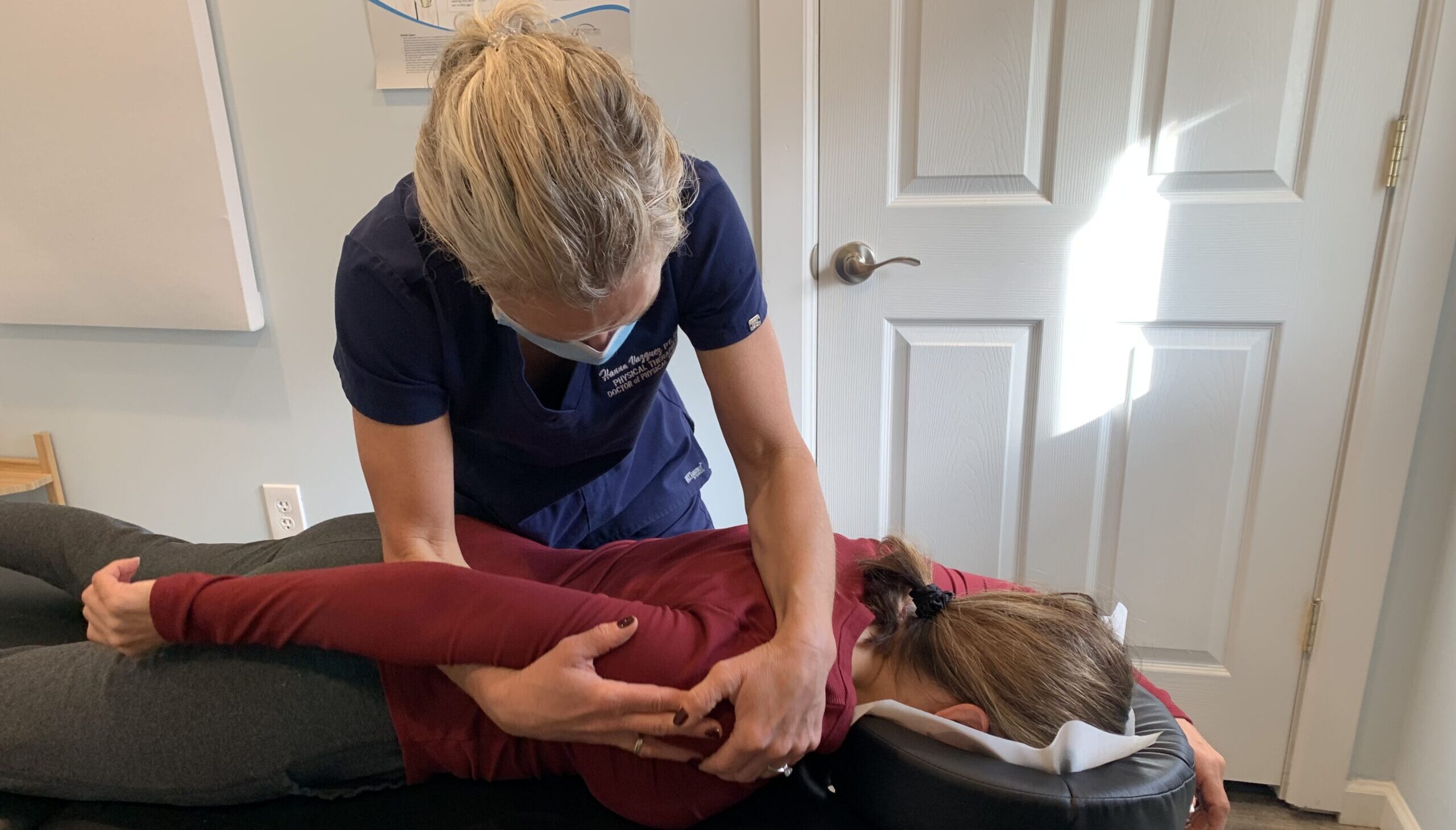
Shoulder Pain
What is Shoulder Pain?
According to the National Institutes of Health, shoulder pain is the result of soft tissue breakdown within your shoulders. This can include problems with your ligaments, joints, tendons, muscles, and all other tissues in the shoulder area. Shoulder pain can happen in a variety of ways. The most common origins of shoulder pain include:
- Frozen shoulder: frozen shoulder, as the name implies, means that you can’t move your shoulder without pain — it’s essentially frozen into place. Frozen shoulder pain tends to be very persistent and may cause a constant ache.
- Dislocated shoulder: when you have a dislocated shoulder, your shoulder socket actually separates from the ball of your arm. This often happens in sports accidents or falls.
- Rotator cuff damage: if your rotator cuff is damaged, you’ll have severe pain throughout your shoulder. Rotator cuff injury can include muscle tears, bursitis, tendinitis, and other injuries.
- Arthritis: arthritis affects your joints, and the shoulder joints are often quite vulnerable to arthritis pain. If you suffer from arthritis, you may have near-constant dull pain.
Causes of Shoulder Pain
Shoulder pain can happen for a number of different reasons. If you suffer from a chronic illness like arthritis, your shoulder pain may develop slowly and then worsen over time. This is the result of joint damage within your shoulder.
In other cases, a shoulder injury isn’t connected to chronic illness but is instead the result of a regular shoulder strain. For example, if you play a sport like a basketball, in which you often raise your arms up, you may suffer a rotator cuff injury from the repeated motions.
Many shoulder injuries happen quite suddenly, while playing sports or by tripping and falling. If you’ve ever had an injury that required shoulder immobilization, you may be at higher risk for other shoulder problems such as frozen shoulder in the future.
No matter how your shoulder injury may have occurred, it’s not something that you have to live with. Physical therapy can be a non-invasive solution that allows you to move without shoulder pain and stiffness again.
How Physical Therapy Can Help Shoulder Pain
Your physical therapist begins by doing a full evaluation of your current shoulder motion and use of your arm. This simple evaluation gives your physical therapist the information they need to customize a treatment plan that allows you to get back full mobility — and to get pain-free as well.
Physical therapy focuses on reducing muscle spasms, decreasing painful inflammation, and speeding up the healing. To accomplish all of these things, a multi-method approach has proven to be most effective. Your physical therapy treatment plan typically includes:
- Strengthening exercises completed at our facility under your physical therapist’s close supervision • Customized exercises that you can do at home
- Joint and tissue mobilizations and manipulations
- Ice pack application to reduce pain and inflammation
- Ultrasound therapy to reduce swelling and encourage faster healing
- Electrical muscle stimulation to reduce pain and muscle spasms
- Cold IV laser therapy
- Dry needling
With the help of a customized physical therapy program, you have the best possible chance of achieving a full recovery from a shoulder injury — without having to undergo surgery. You’ll also be able to avoid taking potentially dangerous narcotics. Physical therapy focuses on the long-term healing of your shoulder injury — and it also relieves your pain in the short term!
Ready to beat shoulder pain for good? Contact our office now to schedule your visit. We look forward to helping you!
Treatment Options
Post Surgical Rehabilitation
Joint Replacements
- Shoulder
Tendon/Ligament Surgery
- Rotator Cuff Rehabilitation
- Labral Surgeries of Shoulder
Self Treatment Videos
Shoulder Exercises
Rotator Cuff
Shoulder Mobility
- Active Assisted Shoulder External Rotation with Wand
- Active Assisted Shoulder Flexion with Wand
- Single Leg Stance with Shoulder Press
Do you know in New Jersey you don’t need a prescription or a referral for physical therapy?
We are Doctors of Physical Therapy and are licensed by the State of New Jersey to identify Movement Dysfunction/Pain.
The faster you undergo care the faster your recovery.